Memory Support
The Village at Summerville’s new memory support neighborhood, Evergreen House, a uniquely designed supportive environment using the Montessori for Aging and Dementia philosophy – One of the only montessori communities in the nation to be built from the ground up.
✤ Respect the person ✤ Observe in order to learn about the person ✤ Encourage independence ✤ Provide meaningful work ✤ Remember that learning and engagement can occur anywhere
The 19,600 square foot neighborhood features:
✤ A specially prepared environment to help residents enjoy maximum independence
✤ Multiple engagement areas to provide individualized and meaningful activities
✤ Colors, finishes, and signage to maximize wayfinding
✤ A secure courtyard for outdoor experiences
✤ 24 private rooms, each with a private bathroom
Intentional Design for Independence
✤ Rooms located in color coded pods for maximum wayfinding.
✤ Bathroom colors match color of pod where room is located and include textured flooring.
✤ Interiors include finishes with contrast including window and door frames
✤ All doors 36” wide for ease of entry.
✤ Signage within room to direct to bathroom
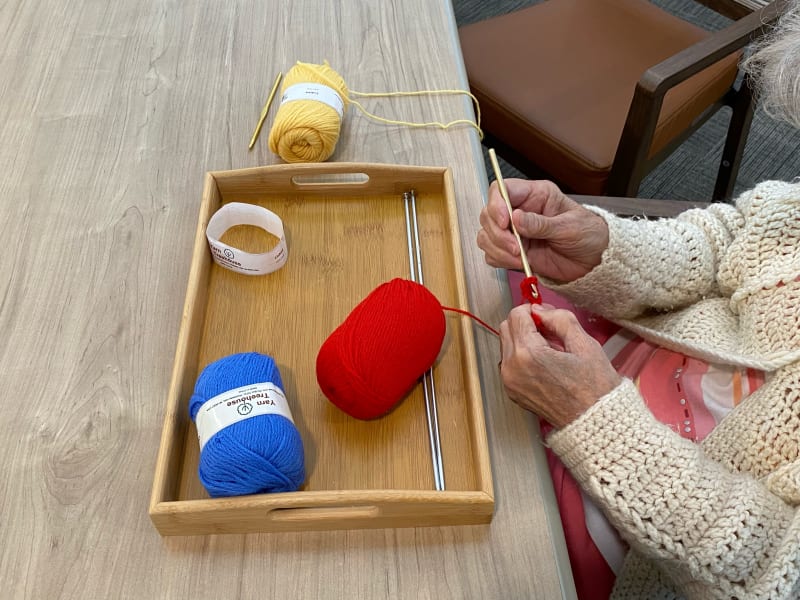
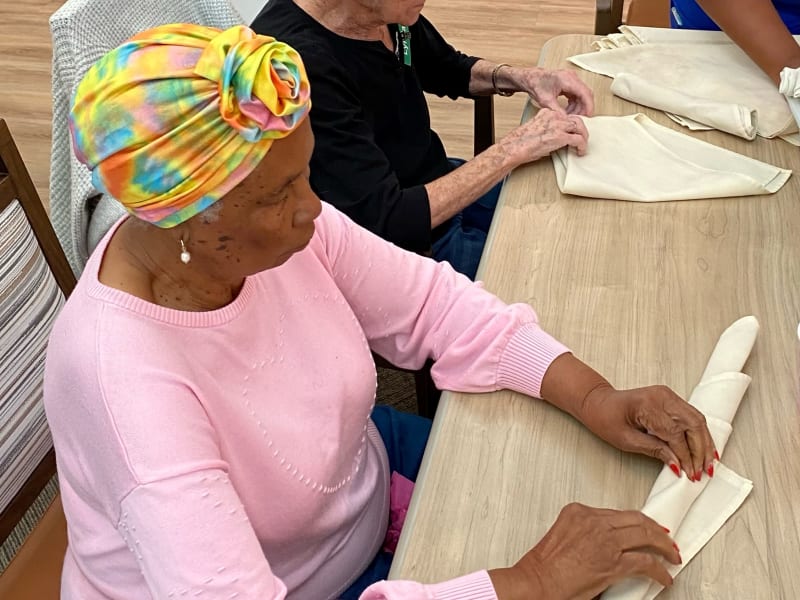
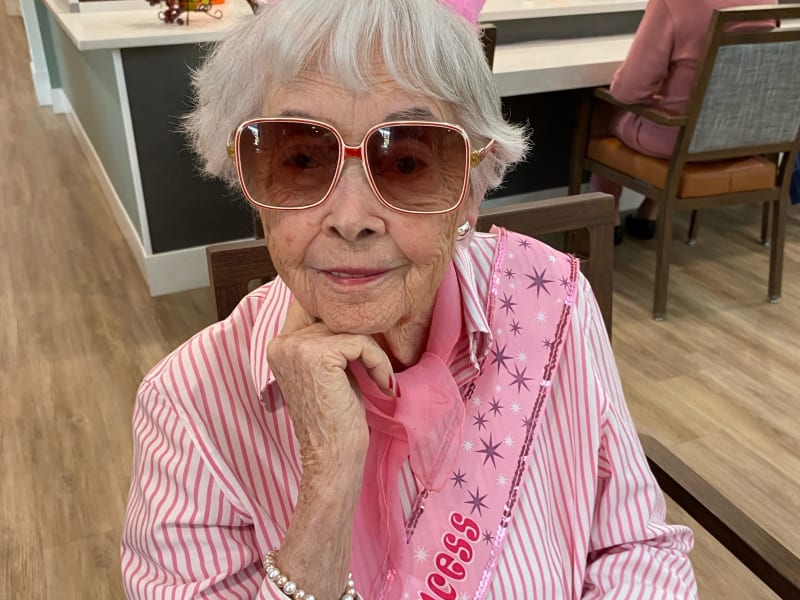
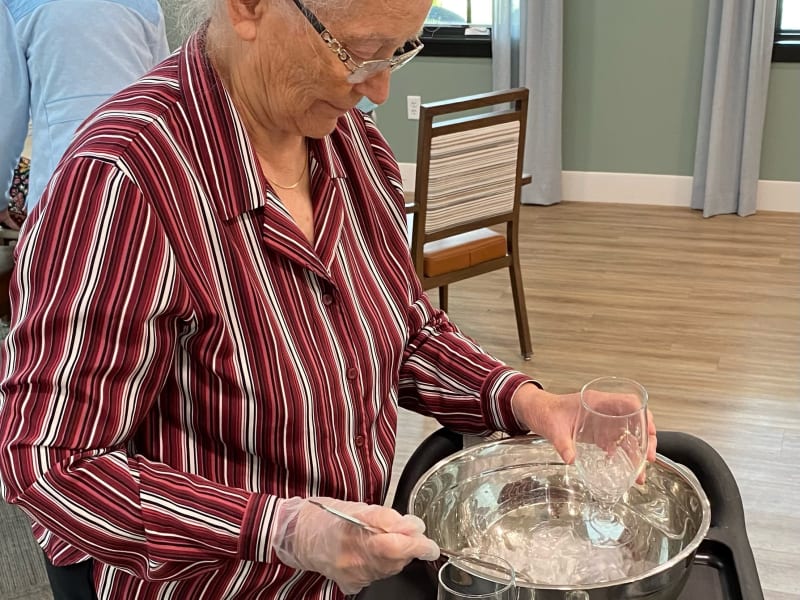
Innovative Design
From Evergreen House’s inception, Jennifer Brush, MA, CCC/SLP, worked in conjunction with Presbyterian Communities of South Carolina and McMillan Pazdan and Smith Architects to design the memory support neighborhood, the first intentionally designed building of its kind in the United States. Ms. Brush is the only trainer of trainers in the US certified by the Association of Montessori Internationale (AMI) for Montessori for Aging and Dementia and one of two trainers in the world with this exclusive expertise. The building is already being presented as the gold standard for memory support design at national and international events.
Uniquely Trained Care Partners
Care Partners at Evergreen House are trained in the Montessori philosophy for dementia care by Jennifer Brush and her team. These special Care Partners collect a thorough history of the resident and collaborate with the resident and his or her family to identify roles that will provide meaningful engagement. Grace and courtesy are used during all communications to support relationship building and independence.
Care Partners practice with residents to help them relearn previous life roles as well as learn new roles they may enjoy. The more residents are routinely engaged in practice, the more they are able to do on their own and many times perform the role independently. The activities and roles happen as a normal course of the day, just like they would if the person was living at home. Specially-designed signage invites residents to participate in normalizing life tasks; familiar roles include setting the table, helping with meal preparation, watering flowers, or doing laundry.
Residents involved with meaningful and purposeful roles experience an environment where they enjoy making contributions. Engagement in having routines with roles help decrease the anxiety and confusion that often are seen in individuals with dementia.
Care Partners encourage independence but are there to invite participation as well as provide gentle reminders to join an activity or participate in a role.
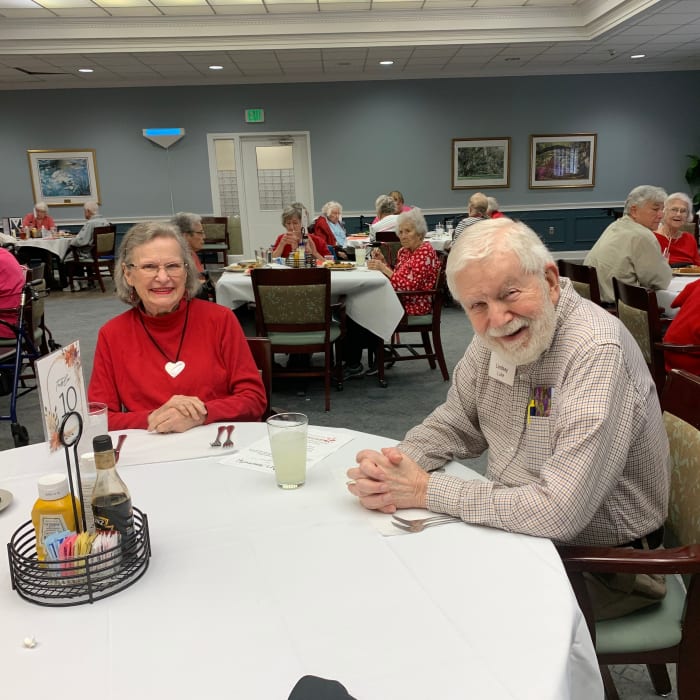
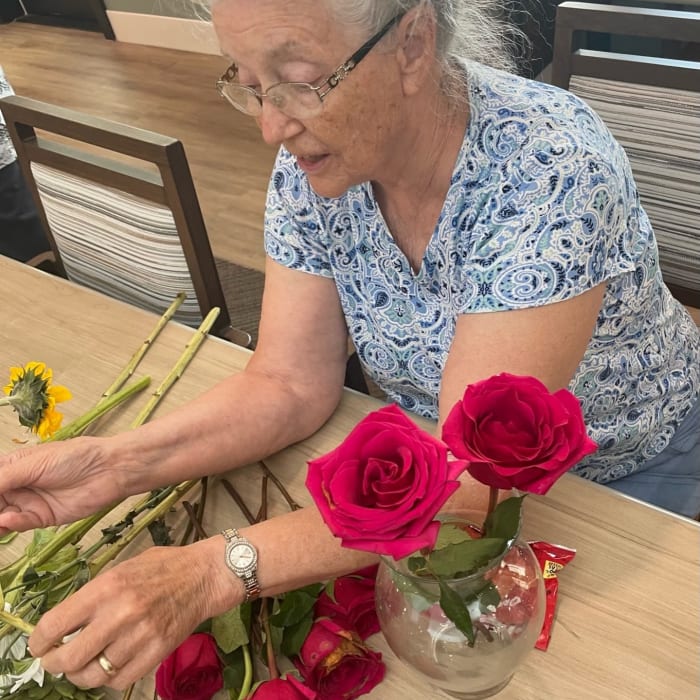
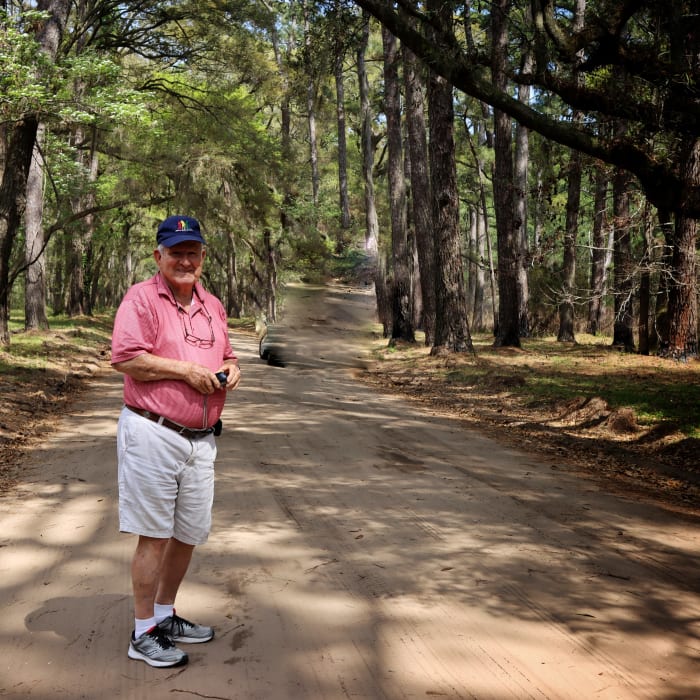
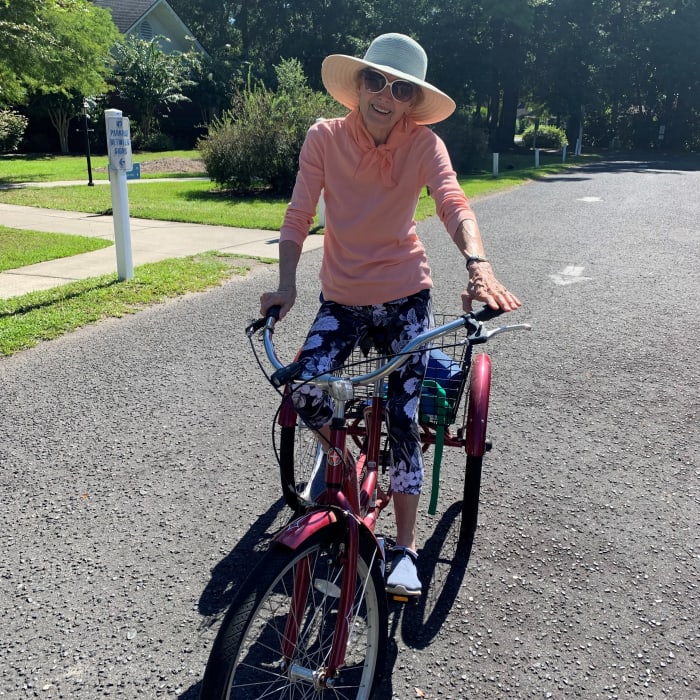
Connect with Us!
Visit The Village at Summerville Today
